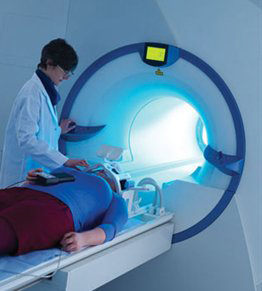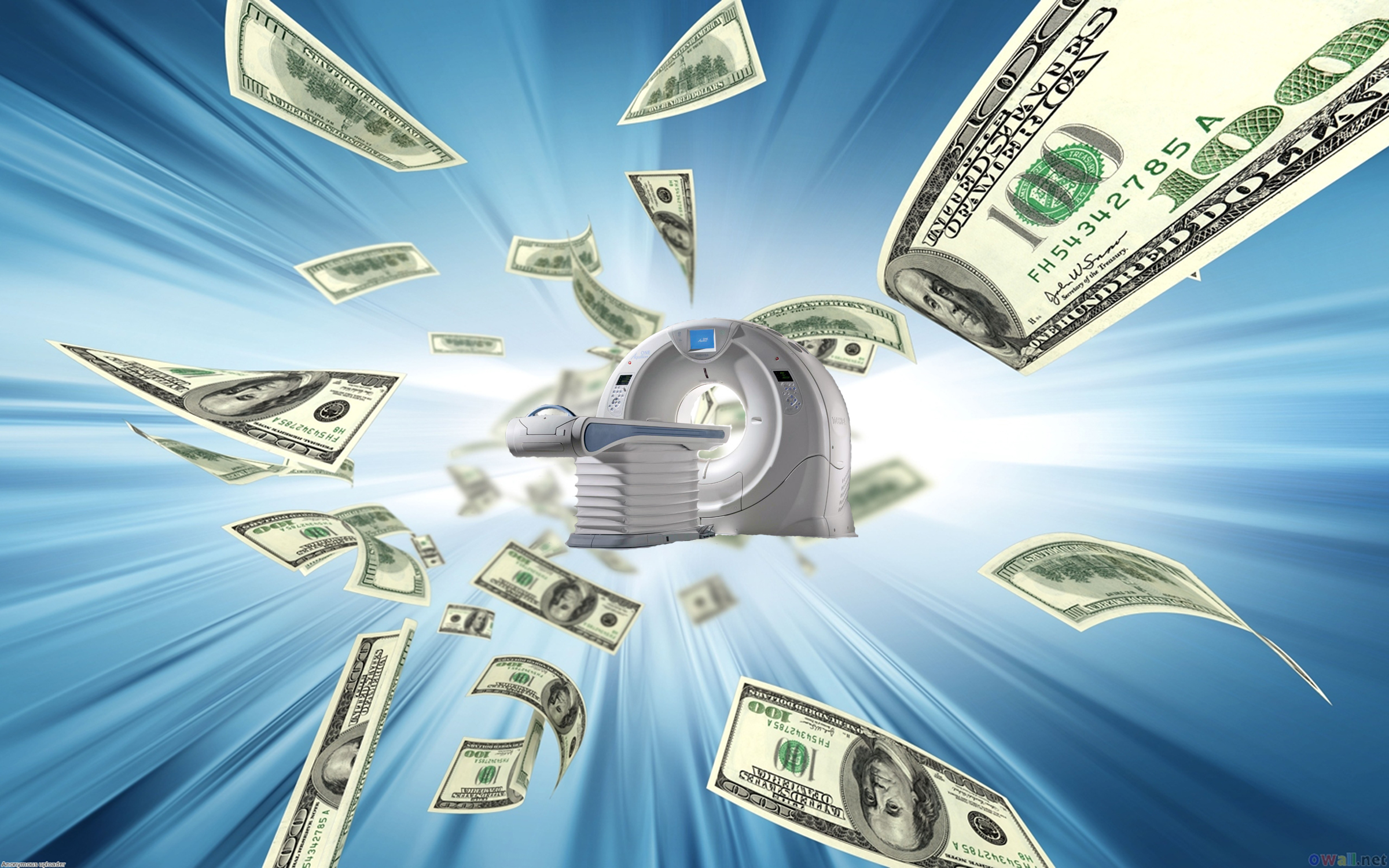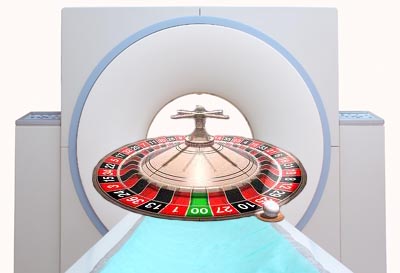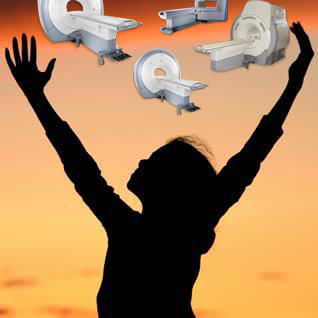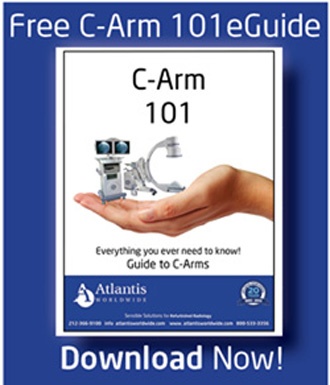NIBIB's 60 Seconds of Science explains what is happening in the body when it undergoes an MRI.
MRIs employ powerful magnets which produce a strong magnetic field that forces protons in the body to align with that field. When a radiofrequency current is then pulsed through the patient, the protons are stimulated, and spin out of equilibrium, straining against the pull of the magnetic field. When the radiofrequency field is turned off, the MRI sensors are able to detect the energy released as the protons realign with the magnetic field. The time it takes for the protons to realign with the magnetic field, as well as the amount of energy released, changes depending on the environment and the chemical nature of the molecules. Physicians are able to tell the difference between various types of tissues based on these magnetic properties.
Sensible Solutions for Refurbished Radiology
Topics: Medical Imaging News, MRI, Medical Imaging Equipment
Used MRI & CT Trade-ins: Get a Bang for Your Buck!
Posted by Vikki Harmonay on Thu, Apr 4, 2013 @ 13:04 PM
When an Imaging Provider wants to upgrade their system, downsize a department, etc., one of the biggest concerns is “How much will we get for our old system?” Regardless of why you get rid of an existing system, a used CT, MRI, C-Arm or Mammography is usually a valuable asset. With budgets tightening and reimbursements shrinking, imaging providers need more than ever to get as much value out of their resources as possible. Let me help you get the most out of your old asset.
Topics: Selling Image Equipment, Buying Imaging Equipment, C-Arm, CT Scanner, MRI
MRI's - Top 5 Things to Consider Before Buying a MRI
Posted by Vikki Harmonay on Fri, Feb 22, 2013 @ 12:02 PM
Maybe it’s time for a new MRI for your department, imaging center or practice. Or you think it might be a good idea to look into buying a pre-owned MRI. Well, before you start saying things like “1.5T” or “high field open” or even “how much,” there are five important things to consider and they all lead to one single fact: if you don’t have referral patterns that support this kind of pricey purchase, you may as well head to Las Vegas and blow that money at the casino.
How you answer these five important questions can save you time, money and even more money.
Topics: Buying Imaging Equipment, Used Medical Imaging Equipment, Imaging Equipment Solutions, MRI
Pre-Owned Medical Equipment in Great Demand Overseas
Posted by Vikki Harmonay on Wed, Dec 19, 2012 @ 10:12 AM
People everywhere are coming around to the benefits of pre-owned medical equipment, but this is particularly true in the developing nations of the world. If the average annual income is US $8,000 (India) or US $12,200 (Romania), it might be hard for a nation to fund new state-of-the-art technology in all of its hospitals and clinics. Even when substantial public or private investment is available, the choice for every parcel of money can be between one new system vs. two, three or four used systems. This is true even for purchasers in developed nations, and is now a crucial option worldwide.
Topics: Selling Image Equipment, Buying Imaging Equipment, C-Arm, CT Scanner, MRI
If You Fell in Love with an MRI at RSNA, is it Time to Buy?
Posted by Vikki Harmonay on Thu, Dec 6, 2012 @ 13:12 PM
It was another great RSNA show in Chicago over Thanksgiving and chances are, you’ve still got visions of new MRI equipment dancing in your head. But is now the best time to buy? And is that new MRI really what you need in order to be more successful at your clinic or facility?
Topics: Buying Imaging Equipment, Imaging Industry Meetings, Imaging Equipment Solutions, MRI
Benefits of Buying Pre-Owned Medical Equipment from a Stocking Dealer
Posted by Vikki Harmonay on Thu, Nov 29, 2012 @ 12:11 PM
Buying from a Stocking Dealer is usually not the cheapest way to buy used and refurbished medical equipment. It’s not. Think about it… they do things like pay to pick-up and deliver the equipment to their location, compensate extra staff, and spread out the costs of forklifts and other warehouse equipment. So, why buy equipment from a firm with the actual systems in their warehouse? Why does it make sense to sometimes pay a little more than buying from a broker?
Topics: Buying Imaging Equipment, C-Arm, Imaging Equipment Solutions, CT Scanner, MRI
Marketing Your New Pre-Owned Medical Equipment
Posted by Vikki Harmonay on Thu, Oct 25, 2012 @ 11:10 AM
So you’ve discovered the enormous benefits of purchasing pre-owned, refurbished medical equipment like MRIs, CTs, C-arms, PETs or other imaging devices. And you’re feeling pretty smart. After all, you get the ideal imaging equipment for your facility without paying full price for the shiny new toy. If you were wise enough to buy from Atlantis Worldwide, you like the fact that they put all pre-owned equipment through a no-holds-barred process that ensures the highest quality standards, rock star performance and reliability and a price point that makes you look like a genius. In other words, it’s as good as new, without the OMG price tag. You also like the fact that Atlantis Worldwide provides an amazing warranty and the exact kind of service contract that will keep it running like new—without the headaches. Think your job is over?
Topics: Buying Imaging Equipment, C-Arm, Imaging Equipment Solutions, CT Scanner, MRI
To Upgrade Diagnostic Imaging Systems or Not to Upgrade?
Posted by Vikki Harmonay on Fri, Jun 15, 2012 @ 09:06 AM
Everyone understands that most diagnostic imaging systems are a long-term investment. The inevitable “big” question is, “When is it time to purchase newer equipment versus making do with perfectly functional existing technology?” It’s a challenge that faces most purchasing departments, clinic and hospital administrators, physicians and office managers—and it’s where Atlantis Worldwide can step in and help make a decision easier. No, we don’t have a crystal ball that allows us to gaze into the future and determine your best course of action. But we DO have more than 20 years of experience in buying and selling imaging equipment, so we understand the market and can help our customers identify the best equipment solutions for their budgets and needs.
When you involve the Atlantis Worldwide team in the decision making process, we will work with you to gather pertinent information that will enable you to make a more informed decision. We’ll compile review a wide range of data: what are the comparative costs of installation? Can your existing system be upgraded easily, or is it easy to remove and replace the equipment? What is the turnover timing? How has your market changed and what are the current needs of your patients, physicians and community? What is the current and ideal workflow? How does equipment depreciation factor in? How will the impending changes to Medicare and the insurance industry impact your business? What are the cost differences in servicing new systems versus upgrading existing ones? By answering these and other questions, oftentimes it illuminates the perfect solution for your diagnostic imaging needs.
Topics: Selling Image Equipment, C-Arm, Used Medical Imaging Equipment, CT Scanner, MRI
A Change In Attitude: Bigger and Better Isn’t Always Best
Posted by Vikki Harmonay on Tue, May 15, 2012 @ 09:05 AM
In the not-so-distant past, many hospitals and imaging groups would rush to buy the biggest and the best medical imaging equipment. After all, who doesn’t want the shiny new toy? But oftentimes these purchases were made without reviewing the needs of a specific facility, market and patient population. Reimbursements were high, and referrals and insurance acceptance were strong, so why worry? In fact, many diagnostic imaging centers were launched on the “if you build it, they will come” philosophy.
Topics: Buying Imaging Equipment, Used Medical Imaging Equipment, Imaging Equipment Solutions, CT Scanner, MRI

